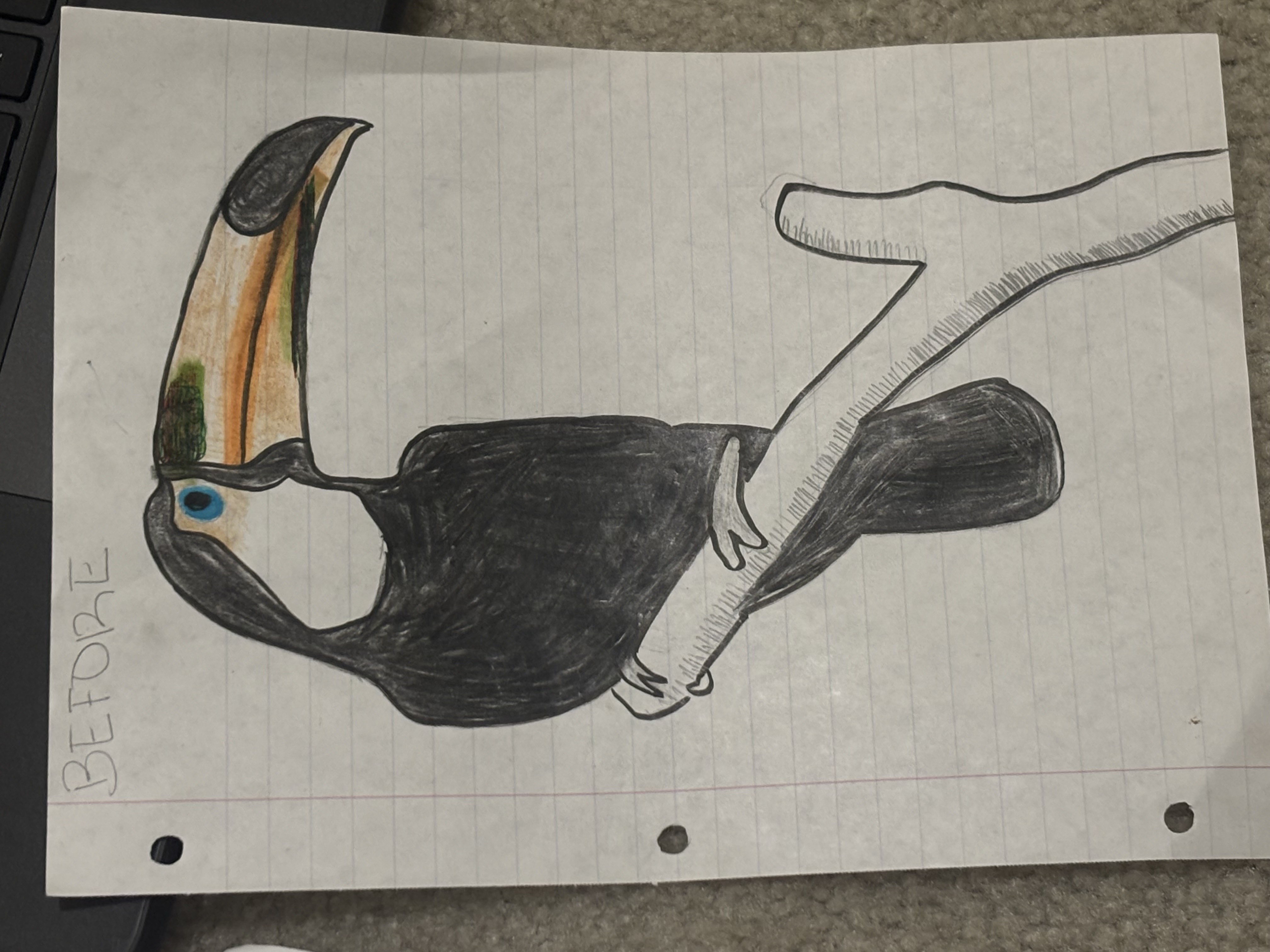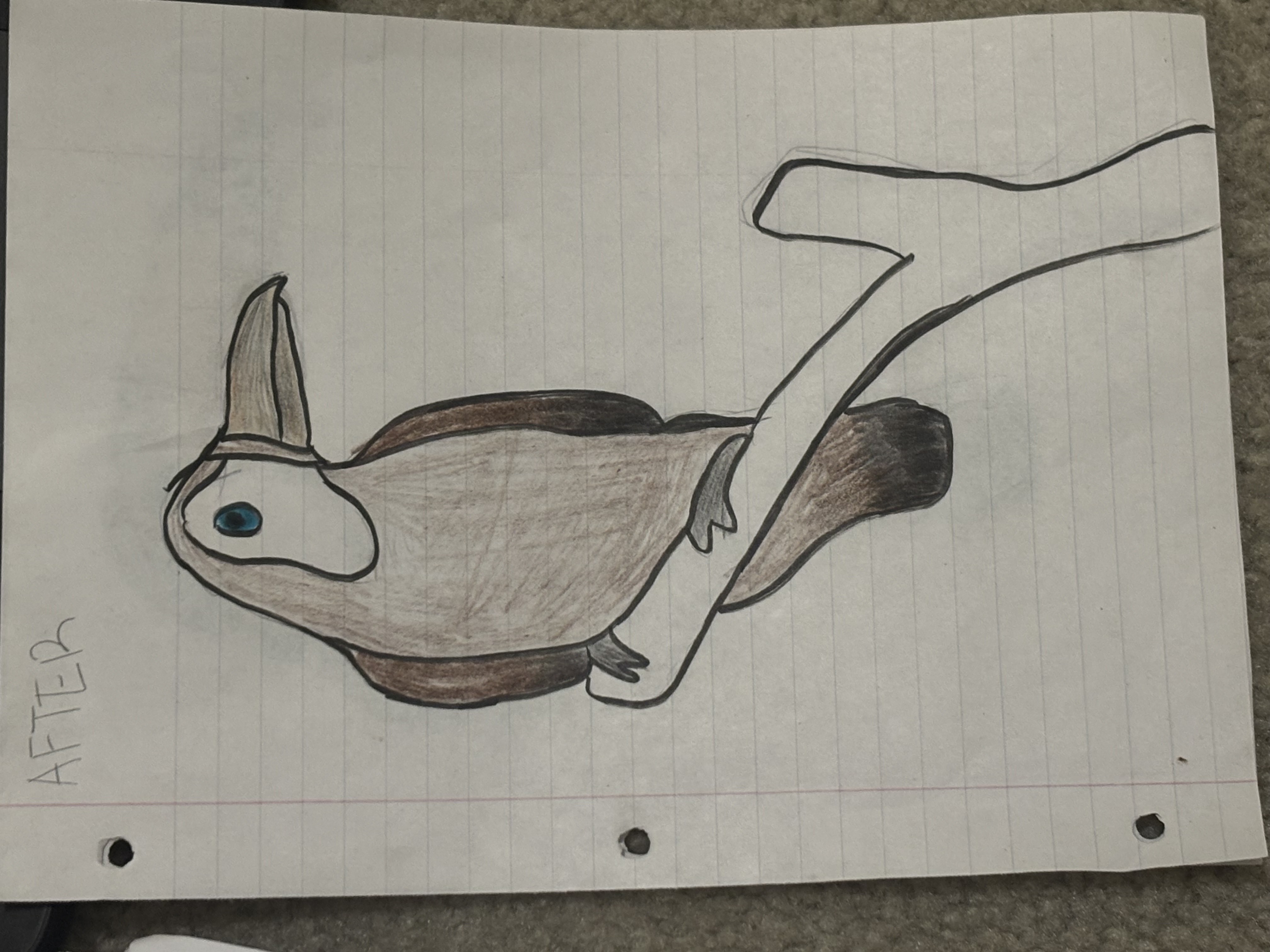In 1000 years, deforestation will have significantly impacted toucans, changing their physical and behavioral adaptations. Present-day toucans have large, colorful beaks that let them search for fruits and communicate. They also have colorful feathers that provide camouflage in the colorful flowers of the forest. Deforestation will, however, drastically reduce their habitat, causing toucans to adapt to poor habitats. Over time, toucans can evolve shorter, stronger beaks to access a wider range of food sources, such as insects or tougher plants as fruit becomes scarce. Their plumage can adapt to more muted colors to blend them into less forested habitats, or even patterns that mimic the barren landscape. Behaviorally, toucans can become more migratory, moving across fragmented patches of forest or adapting to live in urbanized habitats. They can engage more cautiously, adjusting to new environments with scarce resources, eventually changing the way they survive and thrive in a changing world.
Contact us
Thank you for your interest in contacting Future Engineers. We look forward to connecting with you!
General Inquiries
support@futureengineers.orgSponsorship Inquiries
sponsor@futureengineers.org

